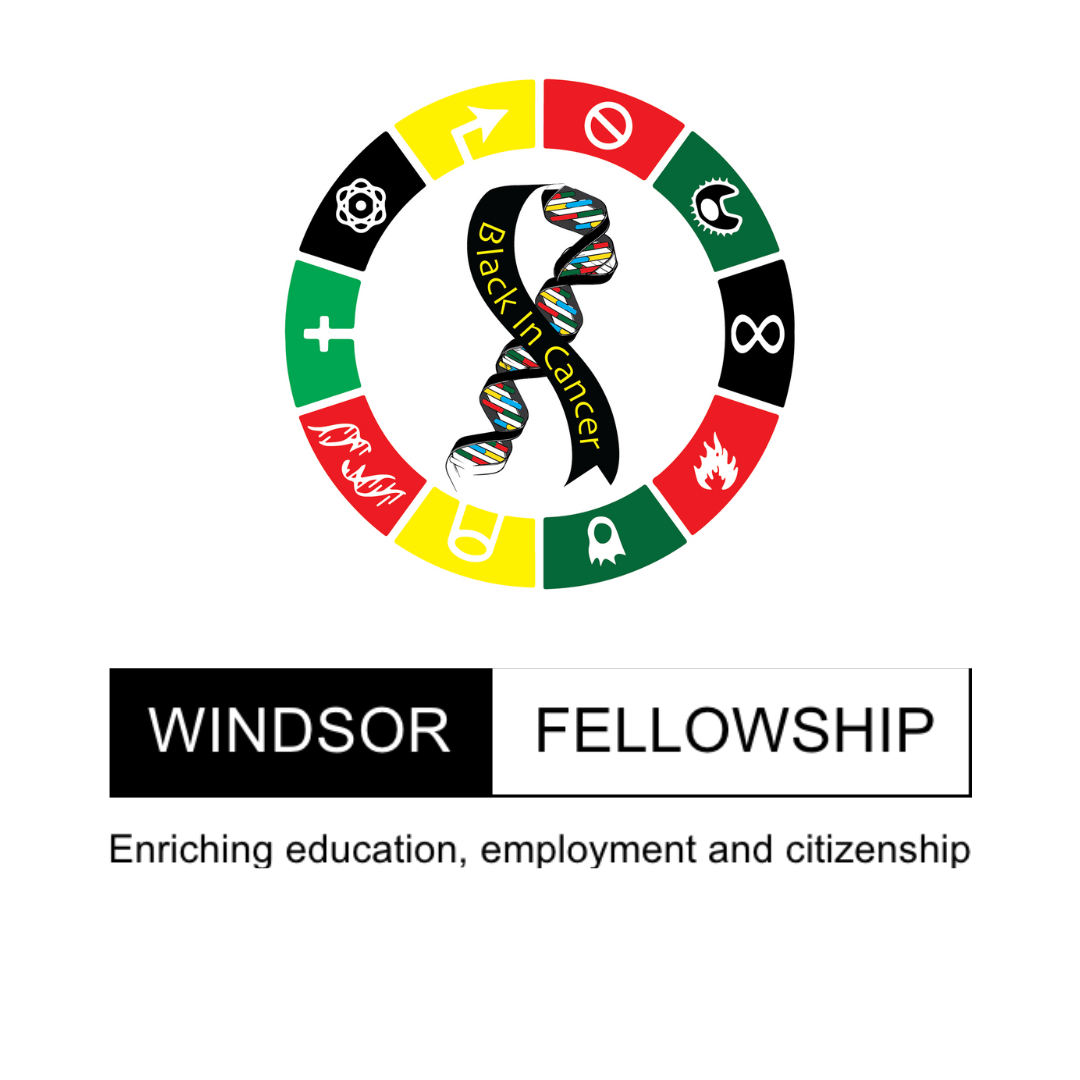Convergence Science Non-Clinical PhD
Black Leaders In Cancer
The Convergence Science Centre (CSC) is participating in the CRUK’s Black Leaders in Cancer PhD Scholarship Programme, which is run in collaboration with Black in Cancer and the Windsor Fellowship. Find out more about the CRUK Black Leaders in Cancer programme here.
This programme provides a unique opportunity for students from Black heritage backgrounds to pursue a four year fully-funded PhD in cancer research. Those students will benefit from our bespoke training programme, and from a comprehensive programme of mentoring, career support, leadership training and networking led by the Windsor Fellowship and Black in Cancer.

1. World class training
Students will follow the four-year version of the non-clinical PhD training programme. You will be trained by world leading experts in cancer biology, engineering and physical sciences at Imperial and the ICR. This will enable you to acquire a broad skill set and learn the language of multiple disciplines.
2. High-quality research outputs
With a range of outputs spanning research publications, presentations at relevant conferences, the PhD will provide you the grounding for your future success as a convergence scientist.
3. Convergence Science Centre Bespoke Training programme
The scientific landscape is constantly evolving, with disciplines merging into novel entities. To navigate interdisciplinary research, our students are required to develop flexibility by learning to integrate diverse skill sets. To support them, we've designed a training programme aimed at developing skills required to work across the boundaries of different disciplines.
All of our Non-Clinical PhD studentships are 4 years in length and students will be under the guidance of a supervisory team of world-class researchers across the two institutions, Imperial and the Institute of Cancer Research. Successful candidates will receive a fixed, tax-free annual stipend of £23,000 per annum, and project costs including tuition fees at the Home rate will be underwritten for the four-year duration. Students enrolled on the programme will be provided with bespoke training to develop the skills required to work across the boundaries of different disciplines.
This programme is aimed at students from Black heritage backgrounds pursuing a PhD in cancer-related fields. This scheme is open to people who self-identify as being from a Black heritage background, including a mixed background, for example: Black African, Black Caribbean, Black Other, Mixed background (to include Black African, Black Caribbean or other Black backgrounds). You will need to submit an initial application to the Windsor Fellowship.
The funding for this studentship covers students with UK. Home tuition fee status only. For more information on Home tuition fee status please visit the UKCISA website. Please note that we will only be able to offer studentships to candidates that have UK home tuition fee status or provide evidence that they can fund the international portion of the tuition fee from external sources (i.e. not self-funded).
The standard Convergence Science Centre PhD programme and studentship academic eligibility criteria are:
A first or upper second-class honours degree (or equivalent from a non-UK university) in a relevant subject.
A master’s degree in a relevant subject
Appropriate English language skills.
Tentative timeline below, more details coming soon.
1. Exploring Project Opportunities - November and December 2025
The list of project summaries is available below. Students review these project summaries and choose up to three projects they're interested in pursuing for their potential PhD.
2. Apply for studentship - January 2026
Eligible prospective Black students apply to the Windsor Fellowship programme and submit an application using the ICR Recruitment Portal. You will need to create an account and then pick the Black in Cancer Leadership Programme 2024-2025 within the portal.
3. Supervisor shortlisting - January - March 2026
Project supervisors are then informed of students' interest in their projects. Supervisors may contact applicants during the shortlisting period to find out more about you and your interest in their project. Supervisors to interview candidates and select top candidate.
4. Panel interviews - March 2026
The top candidate for each project will be interviewed by the Convergence Science Centre Training Committee. One studentship is available therefore the best project and candidate combination gets funded.
5. PhD commences - October 2026
Details coming soon.
For more information on this opportunity and enquiries relating to CSC Training programme, please email to icr-imperial-convergence.centre@imperial.ac.uk. For queries regarding application portal, please contact admissions@icr.ac.uk.